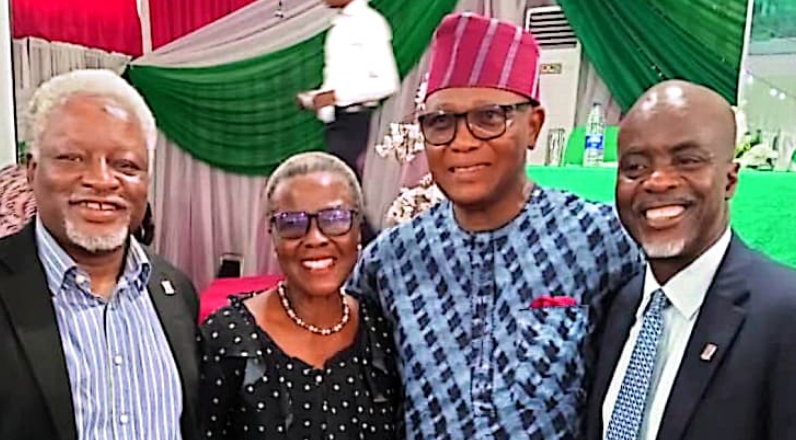- Safiu Kehinde
Lagos State University Teaching Hospital’s (LUTH) Former Chief Medical Director, Prof. Chris Bode, has warned over the persistence of Nigeria’s brain drain, also called japa syndrome, for the next 100 years over failure to meet medical healthcare demands.
Bode issued this warning, during his keynote address at LUTH’s 62nd anniversary held on Wednesday.
Speaking at a forum where administrators proffered suggestions on how to stem the tide of brain drain in the medical sector, the university don highlighted the growing phenomenon of brain drain, which refers to fleeing from hardship with no intention of returning.
Citing recent data, Prof. Bode stressed that Nigeria needs at least 240,000 doctors to meet healthcare demands, but current production rates suggest that the country will still be short in 100 years without drastic changes.
He noted that migration is a global phenomenon affecting all species, but in Nigeria’s case, it has serious consequences for the healthcare sector.
“We are losing doctors and nurses after investing significant resources in training them,” Bode said, warning that the country faces a critical shortage, with one doctor for every 4,000 Nigerians.
This, according to him, is far below the World Health Organization’s recommended ratio of one doctor per 600 people.
He decried the migration of unemployed doctors despite nationwide shortages, attributing the problem to the concentration of medical professionals in urban centers as Lagos and Abuja.
However, the former chief medical director fingered poor remuneration as the leading cause of the migration, with 91% of healthcare workers citing dismal pay as their reason for leaving.
“How can someone spend nearly 30 years in training only to earn a pittance?” Prof. Bode asked, warning that if the trend continues, more staff may leave to worsen Nigeria’s healthcare crisis.
He also blamed poor working conditions, insecurity, and a lack of career prospect as additional push factors.
Prof Bode also touched on cultural challenges faced by Nigerian professionals abroad, including racism and loneliness. “Some people thrive overseas, but others struggle with isolation,” he said, stressing the importance of self-awareness by individuals considering migration.
While acknowledging the benefits of migration—such as remittances, advanced training, and better living conditions—Professor Bode questioned the long-term impact.
He concluded by urging the government to improve salaries, working conditions, and rural infrastructure to encourage healthcare workers to stay. “If we want different results, we must do things differently,” he emphasized.
Meanwhile, LUTH’s Chief Medical Director, Prof Wasiu Adeyemo luaded the dedication and commitment of the hospital’s staff which enabled the teaching hospital to survive the pangs of brain drain.
“Whatever successes we celebrate today would not have been possible without the hard work and resilience of the hospital staff,” he stated.
Other speakers at the event also agreed on the need for collective action to address the brain drain crisis and reposition Nigeria’s healthcare sector for sustainable growth.
The highlight of the event was the recognition of the best clinical department and non-clinical department in the past year.


